
What is Heart disease and hypertension ?

A variety of illnesses that affect the structure and operation of the heart fall under the umbrella term of "heart disease,"
Including coronary artery disease, heart rhythm problems, heart valve disease, and heart failure. Genetics, lifestyle decisions, and medical disorders like high blood pressure or diabetes are only a few of the causes of these illnesses.
The medical disease known as hypertension, often known as high blood pressure, is characterized by a persistently raised blood pressure against the artery walls. Numerous complications, such as heart disease, stroke, kidney disease, and visual issues, may result from this. It's crucial to have your blood pressure monitored frequently by a healthcare expert because hypertension frequently has no symptoms. Treatment for hypertension may include blood pressure-lowering drugs, as well as dietary and exercise modifications.
Numerous consequences, such as heart disease, stroke, kidney failure, visual loss, and cognitive decline, can result from untreated hypertension. The "silent killer" moniker for hypertension refers to the fact that it can harm the body severely without manifesting any signs. Regular blood pressure checks are the only method to determine if you have hypertension.
One of the most frequent side effects of hypertension is heart disease. The strain of high blood pressure makes the heart work harder to push blood through the arteries. The damage to the heart muscle caused by this increased workload over time might raise the risk of heart attack, heart failure, and other heart-related issues.
Obesity, smoking, inactivity, poor diet, stress, family history, and age are some of the risk factors for hypertension and heart disease. Making lifestyle adjustments like controlling your weight, giving up smoking, exercising frequently, lowering your stress level, and eating heart-healthy foods can help prevent and manage hypertension and heart disease.
Working closely with your healthcare practitioner will help you control your condition and lower your risk of problems if you have hypertension or heart disease. Making lifestyle adjustments, controlling your blood pressure with medication, treating other illnesses, and monitoring your health with routine checkups and testing are all possible components of this.
Changing one's way of life can help avoid or manage heart disease and high blood pressure.
Keeping a healthy weight:
Obesity and overweight are risk factors for hypertension and heart disease. Regular exercise and a balanced diet will help you lose weight, which helps lower your blood pressure and strengthen your heart.
Eating a heart-healthy diet:
Eating a heart-healthy diet can help lower blood pressure and minimize your risk of heart disease. Heart-healthy diets are high in fruits, vegetables, whole grains, lean proteins, and healthy fats.
Exercising regularly:
Regular exercise can help lower blood pressure, strengthen the heart, and minimize your risk of developing other health issues like diabetes and obesity. Try to exercise for at least 30 minutes, most days of the week, at a moderate level.
Getting rid of stress:
Prolonged stress can raise blood pressure and increase the risk of heart disease. Utilizing stress-reduction techniques like yoga, deep breathing exercises, or meditation can help lower your risk.
Giving up smoking:
Smoking harms your blood vessels and raises your risk of heart disease, hypertension, and other illnesses. One of the best things you can do for your heart health is to stop smoking.
Both heart disease and hypertension are serious illnesses that, if untreated, can have negative effects on one's health. Changes in your way of living and close communication with your doctor can help you manage chronic illnesses and lower your risk of consequences.
There are a number of drugs that can be used to treat hypertension and heart disease in addition to making lifestyle modifications. These consist of:
Diuretics:
By helping the body rid itself of extra water, these drugs can reduce blood pressure.
Beta-blockers:
These drugs help to lower blood pressure and lessen the risk of heart-related problems by lowering heart workload and slowing down heart rate.
ACE inhibitors:
These drugs aid in blood vessel relaxation and blood pressure reduction.
Calcium channel blockers:
These drugs ease blood vessel tension and lighten the burden on the heart.
Angiotensin receptor blockers (ARBs):
Medications known as angiotensin receptor blockers (ARBs) serve to counteract the effects of a hormone that might increase blood pressure.
To come up with the optimal treatment strategy for your particular disease, it's crucial to consult frequently with your healthcare professional. To assist you manage your hypertension or heart disease, they might suggest a mix of lifestyle modifications and medications.
Heart disease and hypertension are significant illnesses that need to be managed and treated carefully to avoid complications. You can lessen your risk of issues and strengthen the health of your heart by altering your lifestyle, taking medications as directed, and cooperating closely with your healthcare professional.
For the management of hypertension and heart disease, regular monitoring and follow-up with a healthcare professional are also crucial. This could involve routine electrocardiograms (ECGs), echocardiograms, blood pressure checks, cholesterol checks, and other procedures to keep an eye on your heart health.
Following your treatment plan and showing up to all of your doctor's appointments is crucial if you have been given a diagnosis of hypertension or heart disease. If you develop any new or worsening symptoms, such as chest pain, be sure to let your provider know.
In some circumstances, managing hypertension or heart disease may require more than just dietary adjustments and medicines. To enhance heart function or lower blood pressure in these circumstances, surgery or other medical interventions can be required.
It should be noted that heart disease and hypertension are complex diseases that call for careful monitoring and treatment. You can help lower your risk of problems and enhance your overall quality of life by taking efforts to improve your heart health, such as altering your lifestyle and according to your doctor's treatment plan.
It's also crucial to remember that reducing risk factors can occasionally prevent heart disease and hypertension. Keeping a healthy weight, abstaining from cigarette use and excessive alcohol use, eating a balanced food, and more are all part of this.
Your risk of hypertension and heart disease can be decreased by controlling other medical disorders such diabetes, high cholesterol, and sleep apnea.
There is never a bad time to start making changes to your heart health. Your general health and wellness can be significantly impacted by even simple lifestyle changes.
Speak with your healthcare professional if you are worried about your risk of heart disease or hypertension. To help you take charge of your health and lower your risk of issues, they can offer advice and suggestions.
Knowing the warning signs and symptoms of a heart attack or stroke is crucial since these conditions are major medical emergencies that call for prompt medical intervention. Chest pain or discomfort, shortness of breath, nausea or vomiting, as well as pain or discomfort in the arms, back, neck, jaw, or stomach, are all signs of a heart attack.
A stroke can cause sudden numbness or paralysis on one side of the body, difficulties comprehending speech, unexpected changes in vision, and excruciating headaches.
Call 911 or seek immediate emergency medical care if you or someone you know develops any of these symptoms.
Heart disease and hypertension are significant illnesses that need to be managed and treated carefully to avoid complications.
You can lessen your risk of issues and strengthen the health of your heart by altering your lifestyle, taking medications as directed, and cooperating closely with your healthcare professional. Additionally, by being aware of the warning signs and symptoms of a heart attack or stroke, you may ensure that you or a loved one gets immediate medical assistance in the event of a medical emergency.
For the management of hypertension and heart disease, early detection and treatment are essential. This is why it's crucial to arrange routine check-ups with your doctor, especially if you have risk factors for these ailments, such a family history of them or a sedentary lifestyle.
Your doctor may conduct a physical examination as well as tests to assess your cholesterol, blood pressure, and other heart health indicators during your checkup. They might also inquire about your dietary and exercise habits to see if there are any areas where you could improve.
Your healthcare provider may advise additional testing or refer you to a specialist, such as a cardiologist, for additional examination and treatment if they discover hypertension or heart disease.
Even if you feel fine, it's crucial to adhere to your healthcare provider's advice for the treatment and management of hypertension or heart disease. These illnesses are frequently "silent," which means that you might not exhibit symptoms until the ailment has advanced sufficiently. You may help identify any possible problems early and take action to prevent complications by keeping an eye on your heart health.
That is entirely accurate. Regular check-ups with your doctor are essential for monitoring and controlling heart disease and hypertension as well as spotting any possible problems early. Additionally, it's critical to actively manage your health and adjust your way of life in order to improve your heart health.
Additional lifestyle modifications that can help control hypertension and heart disease include the following:
Reduce salt intake:
Limit salt intake because it can cause blood pressure to rise. By eliminating processed and packaged foods and using fresh herbs and spices in place of salt when cooking, you can try to reduce the amount of salt you consume.
Consume a heart-healthy diet:
Including enough of fruits, vegetables, whole grains, lean proteins, and healthy fats in your diet can help you maintain good heart health. Eliminate processed foods and foods high in saturated and trans fats from your diet.
Get regular exercise:
Physical activity has been shown to reduce blood pressure and strengthen the heart. On most days of the week, try to get in at least 30 minutes of moderate-intensity activity, like brisk walking.
Control your stress:
Long-term stress can raise blood pressure and raise your chance of developing heart disease. To relieve stress, try relaxation practices like yoga, meditation, or deep breathing.
Give up smoking:
Smoking increases the risk of heart disease. Ask your doctor about options to assist you stop smoking if you do.
Keep in mind that even tiny lifestyle adjustments can have a significant influence on your heart health. You can assist manage hypertension and heart disease and lower your risk of problems by working with your healthcare provider to make lifestyle changes, follow your treatment plan, and take prescribed medications.


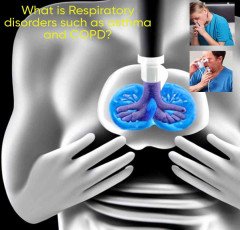
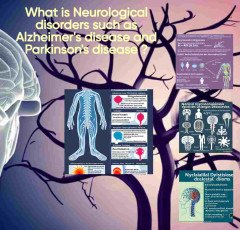
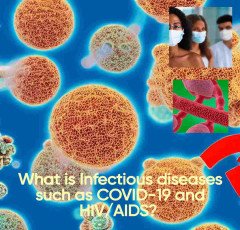
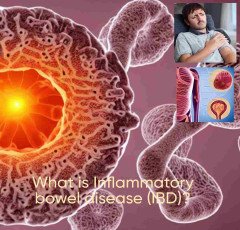
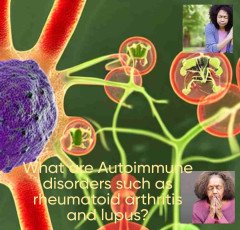







 One World Collection
One World Collection  The Click Engine
The Click Engine  Unreal Engine 5 For Beginners Learn The Basics Of Virtual Production
Unreal Engine 5 For Beginners Learn The Basics Of Virtual Production  Creative Brief For Video Shoot
Creative Brief For Video Shoot  Unlimited access to classes on illustration, photography, design, film, music
Unlimited access to classes on illustration, photography, design, film, music  SEO Checklist
SEO Checklist  Smart Doorbell
Smart Doorbell  NordVPN
NordVPN  ELECTRONIC ACCESSORIES
ELECTRONIC ACCESSORIES  Women Fashion
Women Fashion  Artificial Intelligence
Artificial Intelligence  Best Home Appliances
Best Home Appliances  Favorite Company (Cuelinks)
Favorite Company (Cuelinks)  Acer Laptop
Acer Laptop  Hello Theme
Hello Theme  ASPINAL LONDON
ASPINAL LONDON  Amazon Best Selling Products
Amazon Best Selling Products  ASUS Laptop
ASUS Laptop  TitTok Revolution
TitTok Revolution  Online Technology Classes
Online Technology Classes  Men Clothing
Men Clothing  NordLocker
NordLocker  Best Sellers On Amazon
Best Sellers On Amazon  The Secret Email System
The Secret Email System  BEST SELLER TOP10
BEST SELLER TOP10  Only For The United States
Only For The United States  RPM 3.0
RPM 3.0  1150+Trendy kids coloring pages Bundle
1150+Trendy kids coloring pages Bundle  Top Rated From Amazon
Top Rated From Amazon  Graphics & Design
Graphics & Design  All Wireless Products
All Wireless Products  Best Robotic Vacuum Cleaners
Best Robotic Vacuum Cleaners  Sennheiser
Sennheiser  NordPass
NordPass  SOFAS
SOFAS  Hot Bags For Pain Relief
Hot Bags For Pain Relief  Best Selling Books
Best Selling Books  Online Marketing
Online Marketing 
















